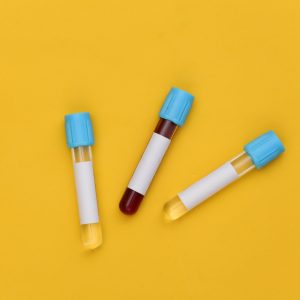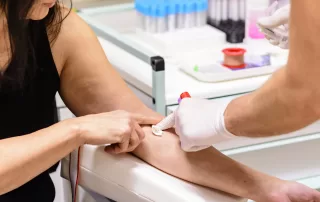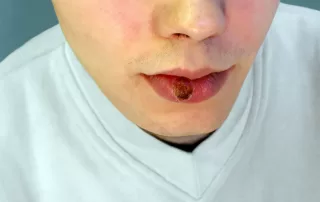Blood tests for vegans/plant based diet
Following a plant based diet? Sometimes being a vegan or vegetarian can make it a little harder to get enough of certain important nutrients. With Qoctor, you can request a pathology referral to check important nutritional markers such as iron, Vitamin B12, thyroid function, Vitamin D, Zinc. Book today for $42.99.
How it works
In Australia, you need to speak to a doctor to obtain a valid pathology referral, and to qualify for a Medicare rebate for the cost of the test(s):
- Answer some online questions, then have a phone/video consultation with one of our doctors.
- Once approved by the doctor, download your pathology request from your Qoctor account.
- Print the form and take it to your local pathology collection centre to get tested
- When we receive your results, they’ll appear on your Qoctor account so you can view them.
- When the doctor checks your results, you’ll also get an SMS
- Book a free follow-up appointment from your Qoctor account, to discuss the results if you wish/if you’ve been advised to.
About blood tests for vegans
*With a valid pathology referral, issued following a doctor’s assessment, laboratories will not charge you for most common pathology tests. This applies to people with a Medicare/DVA card only. If you do not have a valid Medicare card, the lab will generally charge you a fee for processing the test. This fee will vary between different laboratories- you should clarify this with the individual lab before proceeding.

Common Questions and Answers
Health Library- Sexual Health
HIV Self-Testing: How It Works and What You Should Know
HIV Self-Testing: How It Works and What You Should Know Human immunodeficiency virus (HIV) is commonly checked as part of a routine sexual health check, either through your GP or a sexual health clinic. However, HIV self-testing has emerged as a convenient and private alternative for those who prefer to test at home. Book an STI test consultation HIV statistics and risk factors HIV is a virus you can contract through sex or blood-to-blood transmission. It commonly does not have any symptoms initially but over time can affect your immune system and put you at increased risk of certain cancers and infections. According to 2020 statistics, 2,610 people were unaware they had HIV in Australia. Risk factors for getting HIV include being a man who has sex with other men or using intravenous drugs. However, anyone [...]
Balanitis: Signs, triggers, and how to treat it
Balanitis: Signs, triggers, and how to treat it Balanitis is inflammation of the head of the penis (glans). It can cause symptoms such as irritation of the glans, redness, discomfort, swelling, small spots or discharge that is white and thick (or cheesy). There are many causes of balanitis, including dermatitis, irritants, fungal infection, bacterial infection, physical rubbing, yeast infection, poor hygiene, and also overzealous cleaning. Book a GP appointment Risk factors for balanitis Balanitis is much more likely to occur in men who are uncircumcised because the glans is covered by the foreskin, which creates a moist, closed, and warm environment for bacteria and fungi to overgrow. Balanoposthitis: A related condition Another condition, balanoposthitis, means inflammation of the foreskin and glans, which has the same triggers and causes as balanitis. [...]
Syphilis
Syphilis As one of the oldest sexually transmitted infections (STI) still present today, syphilis continues to make its mark in the 21st century. In 2023, there were over 8,000 notifications for syphilis in Australia, up from over 2,000 in 2010. Worldwide in 2022 there were 8 million adults with syphilis and 700,000 babies born with congenital syphilis. It is an infection that has famously been claimed to have affected Casanova, Oscar Wild, Fyodor Dostoevsky, Ludwig van Beethoven and Vincent Van Gough, while also creating tension between kingdoms and countries in the past. Book an STI test So, what is syphilis? It is a bacteria that can be transmitted during sex through the mouth, penis, vagina and anus. It can also be transmitted in blood transfusions, intravenous drug use and pregnancy. In Australia, there are higher rates [...]



